#Lucifer meta
Text




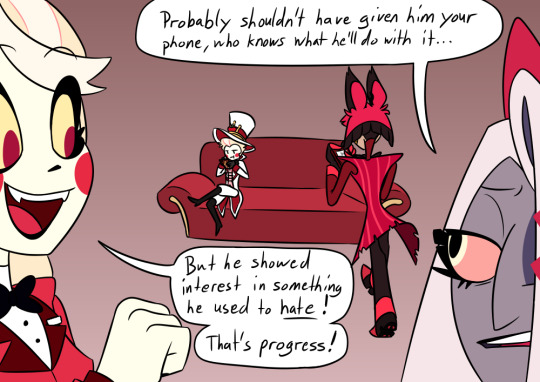

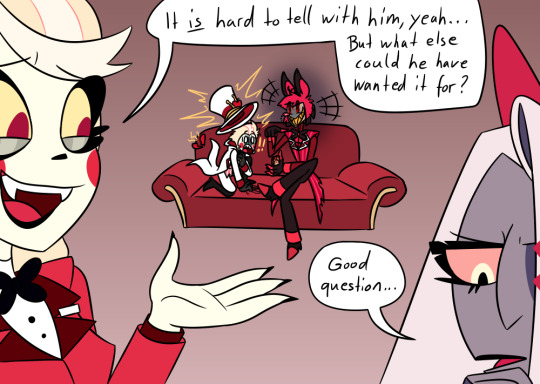
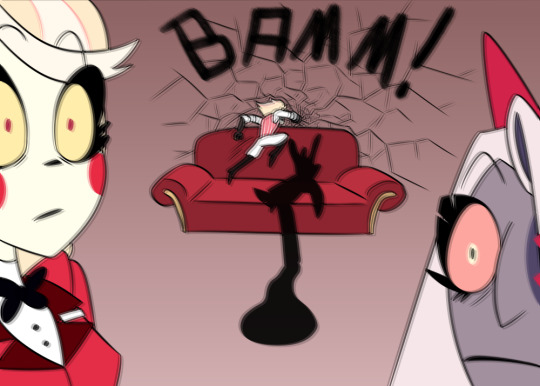

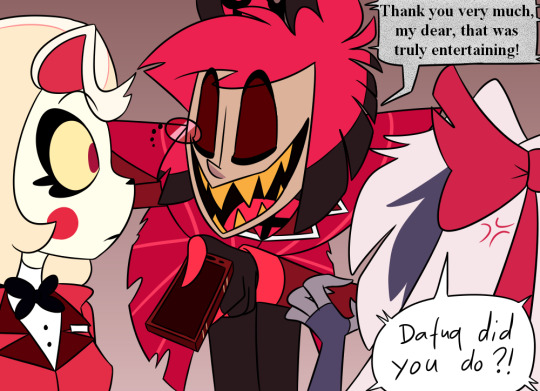
Lucifer, calling up Heaven after discovering that this is not even that rare of an occurrence: WHO THE FUCK MADE DEER BE LIKE THAT??!!?
Also yes, Lucifer spontaneously dematerialized both his hat and coat in shock/anger XD
#Hazbin Hotel#Hazbin Charlie#Charlie Morningstar#Alastor#Radio Demon#Vaggie#Hazbin Lucifer#comic#Meta#MetaTheTrifox#MetaLatias#MetaLatias5
7K notes
·
View notes
Text
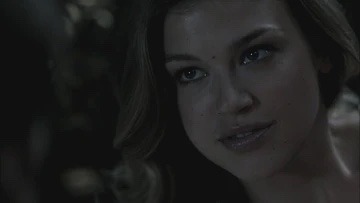
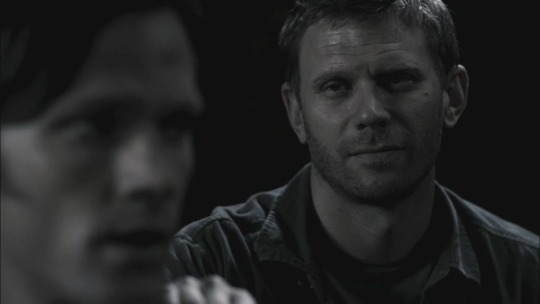

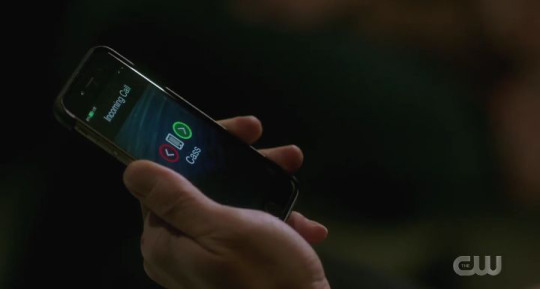
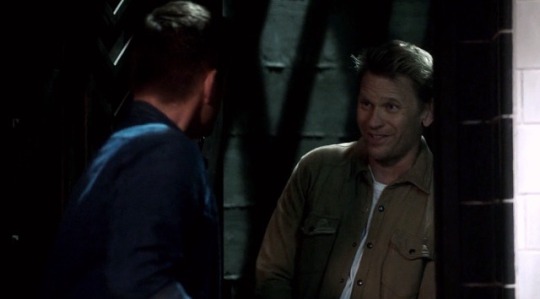
That one time Lucifer confirmed Destiel and Dean’s feelings for Cas
#I’ll be better in 2025 I promise#supernatural#spn#dean winchester#destiel#castiel#deancas#misha collins#jensen ackles#spn crack#lucifer#sam winchester#jessica moore#spn 15x19#15x19#parallels#spn parallels#spn meta#spn 5x03#5x03#sam x jess#dean x castiel#dean x cas#destiel canon#destiel meta#destiel love confession
3K notes
·
View notes
Text
Meta request: Lucifer (SPN)
Hey, I want all the SPN Lucifer meta. If it's controversial or too fucked up to share, slide it to my D-Ms.
#lucifer spn#lucifer meta#lucifer is interesting#I'm just saying he's both evil and a literal scapegoat#amazing interplay
0 notes
Text
I think this has been in a good number of fanworks already so I'm not exactly covering new ground here, but the idea of Lucifer helping Alastor with his angelic wound on behalf of Charlie never gets old to me.
Alastor continues to pretend that nothing is wrong until he just can't pretend anymore - is it exhaustion? Is it the fact that his injury is so obvious to literally everyone else that it'd be pointless to keep it up? You decide, but either way, he's forced into an intervention.
And then when Lucifer offers healing — because we can't have you dying on us, you idiot, he says, or really anything of the sort — Alastor refuses.
No! Certainly not. No, thank you.
What do you mean? You don't want healing? Do you want to die again? Because you're going to.
Don't mock me. Why are you here? What do you want from me?
Then Lucifer has to convince Alastor that there is, in fact, no catch. It's not a concession Lucifer seeks to hold over Alastor's head forever (not that Luci isn't free to do a bit of gloating); not a way for Lucifer to harm him under the guise of aid; not a favour for a blank cheque to be cashed in at a later date.
Finally, with no small amount of frustration or needling or "will you please just let me do this holy hell this is taking forever" on Lucifer's part, Alastor agrees.
And maybe when it's over, maybe he hates Lucifer just a little bit less than he did. Maybe Alastor trusts just a tiny bit more.
Seriously, you could write this a hundred times and I would probably read all of that. I'm a sucker for the setup, what can I say?
#alastor#hazbin alastor#hazbin hotel alastor#alastor meta#hazbin hotel#hazbin hotel lucifer#lucifer#if anyone wants to send me fics that fit this criteria I would very much appreciate it#appleradio#radioapple#technically as in their interactions#hazbin hotel headcanon#hazbin hotel hc
582 notes
·
View notes
Text
Some thoughts on Lucifer's mental health, relationships, and role as king of hell!

Lucifer’s perception of himself as the king of hell is really interesting to me because he’s very blase about it in canon while totally using it when it suits him.
I think it’s really telling that the first time he actually brings it up himself is when it’s something he can leverage to help Charlie out. He reads to me like someone who objectively knows that he’s the hottest shit in town, but also just doesn’t really think that it matters most of the time because it's not relevant to his personal problems. Being Lucifer Morningstar did not allow him to achieve his goals in petitioning heaven. Being the most powerful person in hell didn’t even un-fuck his family life!
...Except for when suddenly it might in fact help un-fuck his relationship with his daughter.
It's the main thing he can desperately and dramatically showcase as a worthwhile reason for Charlie to maintain a relationship with him, because he as a person is depressed, half-functional, and barely has enough spoons to pay attention to a conversation he's having with her while he's actively having it, nevermind remembering their last one.
He wants to! And it doesn't start with his song at the hotel! It starts with him answering the phone, heavily fumbling actually connecting with Charlie despite clearly desperately wanting to, and then realizing she's asking him for something and promptly choking on his tea before excitedly telling her, "Yeah! Of course! Anything within my power is yours for the asking, you just name it." He knows that there is a great deal 'within his power,' and he's happy and relieved that he can offer her that!
Lilith has been gone for years but he's still wearing his wedding ring. His walls are still covered in family portraits. He's just been sitting in his room making thousands of rubber ducks he thinks suck instead of ruling hell, because his daughter liked that one duck he made one time.
Charlie needed him to support her in her mission, but damn did Lucifer also need Charlie to get him out and moving and actually doing things again.
Anyway, someone get this man on an SSRI.
#hazbin hotel#hazbin lucifer#lucifer magne#lucifer morningstar#meta#personal#text posts#long post#expanding on some comments I made about him in an ask!#can't WAIT to find out what his and Lilith's deal is#my funky little depressed king#Alastor took him not knowing who he was personally#but after his comments about watching TV and not remembering Charlie's hotel#I think it's pretty clear Lucifer is just out of touch as hell because he hasn't got the spoons to function like people think he would#ETA: I tried to write a little rambling meta post failed to get my feelings out and now I'm 3k words into a fic#I NEED TO JUST REMEMBER THAT FIC COMMUNICATES MY FEELINGS BETTER..........
735 notes
·
View notes
Note
Hi! Do you think Alastor and Lucifer are foils?
Hi!
Yes, of course they are!

Alastor and Lucifer's foiling starts in Dad Beats Dad (obviously), where they fight over Charlie's affection. They might seem as opposites throughout the episode, but they are actually the same, as they both try to impress Charlie with their powers:
[ALASTOR:]
They say, when you're looking for assistance
It's smart to pick the path of least resistance
[LUCIFER:]
Others say, that in your needy hour
There's no substitute for pure angelic power!
Still, Charlie doesn't care and all she wants is for her parental figures to support her:
Charlie: How come he can have faith in me, but my own father can't?
In short, Alastor and Lucifer find pride in their abilities, but need to let go of it, in order to show their love for Charlie. By the end of the episode, they both accomplish this. However, they succeed in slightly different ways, that fit their shared motif of shadow and light. In particular:
Alastor is linked to shadows, as his abilities let him manipulate shadows
Lucifer is linked to light, as his name means morningstar and his powers manifest in light-beams
As a result:
Alastor's development happens in the shadows, whereas Lucifer's in the light - This is true also on a meta-level, as Alastor's arc is the secondary plot-line of the episode, whereas Lucifer's is the main one
Alastor acts as Lucifer's jungian shadow and becomes a catalyst for him to change. Similarly, Alastor himself is challenged to grow by his own jungian shadow, aka Husk
What is the jungian shadow? It is the repressed part of a person. In stories, a character might meet another one, who embodies this hidden part of the self. By integrating with the shadow, the character evolves. In other words, Alastor represents a repressed part of Lucifer and Husk a repressed part of Alastor. Let's see how it all plays out.
ALASTOR, HUSK AND MIMZY
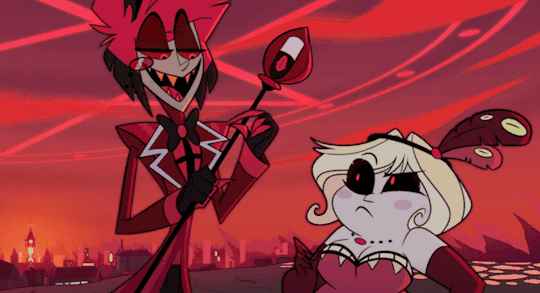
Alastor and Mimzy's bond is unhealthy, as they both enable negative sides of the other. On the one hand Alastor keeps covering for Mimzy, no matter what she does. On the other hand Mimzy feeds Alastor's ego by praising his power and abilities.
So, Mimzy never faces the consequences of her actions:
Mimzy: Thanks for helpin' lil' old me out of a though spot. You're always such a pal.
And Alastor feels respected and appreciated:
Alastor: It's nothing I can't handle. Don't worry Husker. Who in their right mind would cross me?
However, the reality is that Mimzy is using Alastor and Husk points this out:
Husk: You and I both know Mimzy only shows up, when she needs something. That bitch is trouble and who knows what kinda demon she fucked with to come running to you this time?
Not only that, but he openly calls Alastor out on his pride:
Husk: Big talk for someone, who's also on a leash.
Which results in Alastor reacting in anger:

That said, Husk is proven right. It turns out Mimzy has willingly brought chaos to the hotel, so that Alastor could solve things for her. Because of this, Alastor finally cuts ties with her:
Alastor: You deliberately brought danger to this place just to have me clean up your mess. I can't have that here.
This choice is important and it shows how the people around him are slowly impacting Alastor. On the one hand the Radio Demon listens to one of his subjects' advice. On the other hand he acts to protect the hotel. As a matter of fact the moment Alastor steps up as the Host of the Hotel isn't when he sings to Charlie in Hell's Greatest Dad nor when he transforms into a giant and fights. It is when he sends Mimzy away and sacrifices a little bit of his pride to do so. interestingly, this happens as nobody is looking at him, so he isn't really trying to impress nor to trick the others. He acts selflessly in the shadows.
LUCIFER, ALASTOR AND CHARLIE

Lucifer and Charlie's bond is strained:
Charlie: We just have never been close. After he and mom split, he never really wanted to see me. He calls... sometimes, but only if he's bored or like, needs me to do something.
At the root of this conflict there is Lucifer's inability to show his daughter how much he cares. He struggles to express his feelings and hides them behind a prideful persona:
Charlie: I told you when you called me five months ago. Or did you not listen?
Lucifer: No, no, no, no. Just, you know, I just forgot. I've just been really busy, ya know with um... important things.
Instead of openly admitting his depression and sadness he prefers to look cold and uninterested. Even dismissive and condescending, like when he arrives at the Hazbin Hotel:
Lucifer: Wow, this place sure looks, uh... Uh-uh. Yeah. Uh-uh. It's got a lot of character!
Lucifer is initially too focused on what he cares about - meeting his daughter - rather than on what Charlie wants - for him to help her with the hotel. He happily hugs Charlie and then immediately moves on to pet Keekee, Razzle and Dazzle, who are his own creations. Only later he considers the welcome Charlie and the others have prepared for him. Even then, he still misses the point and tries to buy Charlie's love by showing off his magical powers:

Haha, looks like you could use some help
From the big boss of Hell himself
Except that what Charlie wants from him aren't champaigne fountains or caviar mountains, but an appointment with Heaven, which he negates her. Not only that, but instead of being honest about his fears, he deflects everything on Charlie herself, by dismissing her plan:
Lucifer: Alright, listen, I love that you want to see the best in people, but these sinners... You know, they're just the worst. I, I don't know how much you can realistically expect from them in Heaven.
Luckily, the Radio Demon is closeby, as he forces Lucifer to show his true self.
On the one hand Alastor brings out Lucifer's insecurity and fears:
I'm truly honored that we've built such a bond
You're like the child that I wish that I had
I care for you, just like a daughter I spawned
It's a little funny, you could almost call me dad
He juxtaposes moments of everyday life and affirmations of affection to Lucifer's materialistic and fancy promises. In this way Alastor highlights the faults of Lucifer, as a father. He points out that Lucifer is never there for Charlie.
On the other hand Alastor embodies the kind of sinner Lucifer despises:
Lucifer: Ya see? What I tell ya? Charlie, sinners are violent psychopaths, hell bent on causing as much pain and destruction as they can. There's really no point in trying.
And yet, such a violent psychopath is more willing to help Charlie than Lucifer himself:
Charlie: Dad, stop! He's defending this hotel. It may be a bit more sadistic than I'd hoped. But he's doing it for me!
This realization leads to a confrontation between father and daughter and to an admission on Lucifer's part:
Lucifer: I just don't want you to be crushed by them like... like I was.
The problem isn't Charlie, but Lucifer himself. It is not that Charlie's dream is silly, but that Lucifer's one has been destroyed. This revelation is important because Lucifer's mask comes off and he shows Charlie his weakest and most broken self. He swallows his pride and has Charlie see who her father really his. In all his mistakes and his hurt. And to his surprise Charlie accepts him. Not only that, but she admires him:
So in the end, it's the view I had of you
That showed me dreams can be worth fighting for
Symbolically the song More than Anything starts with Lucifer and Charlie in the shadows:
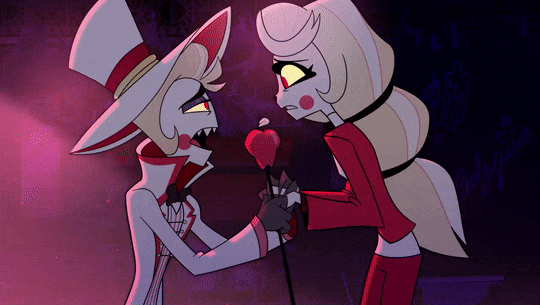
They are repressing a lot and have no idea who the other is. Still, as the song goes on, they get to understand each other:

All that I'm hopin', now that my eyes are open
Is that we can start again, not be pulled apart again
'Cause in the end, you are part of who I am
And they end the song surrounded by light:
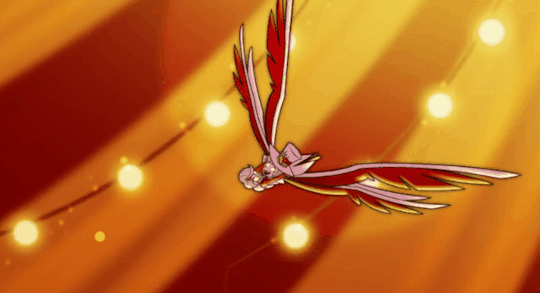
What is initially in the shadow comes to light in three different ways:
Lucifer shows Charlie his true self
Lucifer sees Charlie for who she is
Lucifer exhibits his weakness in front of the whole Hazbin Hotel. He lets the sinners he dislikes so much witness the mess that he is.
His fragility is in full display. It is in the light for everyone to see.
PHENOMENAL COSMIC POWERS! ITTY BITTY LIVING SPACE!

Another similarity Alastor and Lucifer share is that they are two powerful beings that give much importance to free will:
Alastor: You should know better than anyone what a soul can accomplish when they take charge of their own fate.
Charlie: Together, they wished to share the magic of free will with humanity.
And yet, they are both trapped:
Alastor: I'm hungry for freedom like never before
The constraints of my deal surely have a backdoor
Once I figure out how to unclip my wings
Guess who will be pulling all the strings?
Charlie: As punishment for their reckless act, Heaven cast Lucifer and his love into the dark pit he had created, never allowing him to see the good that came from humanity, only the cruel and the wicked.
On the one hand Alastor controls many souls, but his own is owned by someone else. On the other hand Lucifer is the strongest being in all of Hell, but he is regarded as a disgrace by other angels.
Moreover, they both project their unhappiness on others. Specifically, Lucifer blames sinners like Alastor:
Lucifer: Our "people", Charlie, are awful! They got gifted free will and look what they did with it! Everything's terrible!
While Alastor lashes out on his prisoners, like Husk:
Alastor: If you ever say that again, I will tear your soul apart and broadcast your screams for every other disrespectful wretch who dares to question me.
Still, the point is that Lucifer is exactly like Alastor. He is a gifted creature, who messed up royally and cursed humanity. Alastor instead is exactly like Husk, a powerful overlord, who still finds himself chained. Lucifer is the most hated being in all of creation and Alastor is on a leash. They are both lonely and desperate, but too proud to admit it. In other words, they are both losers:
Husk: There was a time I thought no one could relate
To the gruesome ways in which I'm damaged
But lettin' walls down, it can sometimes set you straight!
We're all livin' in the same shit-sandwich
Just like everyone in Hell. And yet, this is not bad per se. Even if you hit rock bottom, you can still climb back up, as long as you let go of self-importance and start to earnestly empathize with others. As a matter of fact it is only through community and bonds that a person can be redeemed and heal:
Out for love
Love
Think of who you care about
Protect them and be out
For love
Love
You're gonna fight without gloves
Long as you're out for love
This is what Alastor and Lucifer are learning through Charlie.
TWO DADS, ONE DAUGHTER

Season 1 sets up Alastor and Lucifer as two mentor figures to Charlie. They share this role in a way, which makes them almost perfect mirrors. Some examples:
Lucifer gives Charlie the hotel building and Alastor calls it Hazbin Hotel
Alastor helps repair the Hotel in the beginning, while Lucifer assists Charlie in building it anew by the end
Lucifer guides Charlie to Heaven, as he sets up her meeting with Sera and Emily. Alastor instead guides Charlie in Hell as he introduces her to Rosie and helps her inspire the cannibals
Both Alastor and Lucifer believe in Charlie, when she is at her lowest. Alastor does so before the final battle, whereas Lucifer after the fight
Alastor and Lucifer fight Adam (another foil of theirs) in the final episode. Moreover, both belittle his abilities and highlight how he is strong, but unskilled:
Alastor: You lack discipline, control and worst, you are sloppy!
Lucifer: So, this is what you've been up to since Eden? Gotta say, you really let yourself go buddy.
In particular, Alastor is the one supposed to take Adam down, but fails and Lucifer steps in by the end. This is just like in the beginning Lucifer is supposed to support and help Charlie with her project. Still, he is absent and Alastor fills the spot.
In other words, Alastor and Lucifer are unwillingly complementary and so far one has appeared when the other has been incapacitated. We'll see if this pattern continues. As for now, they are clearly framed as key to Charlie's development, so it is possible they will come to embody different sides of her:
Alastor represents the sinners Charlie wants to reach and all their pain and complexity. He is also linked to fear and the unknown. He is the ally she finds by herself. He is the found family Charlie chooses.
Lucifer represents the angels Charlie wants to communicate with. He is also linked to dreams and ideals. He is the legacy she inherits. He is the biological family Charlie wants to re-connect with.
In short, they are both parts of who Charlie is and she needs them to grow into herself. Just like they need her to mature and find redemption and happiness.
#hazbin hotel#hazbin hotel meta#alastor#alastor hazbin hotel#lucifer morningstar#lucifer hazbin hotel#my meta#asksfullofsugar#anonymous
213 notes
·
View notes
Text
Paradise Lost: How John Milton's 1667 work influenced "Hazbin Hotel"
I've been thinking about why the "fruit of knowledge" in Hazbin Hotel is depicted as an apple, as opposed to another fruit that would've been more accurate to the Middle East during the Fall of Man, as well as how Paradise Lost by John Milton (1667) influenced the show.
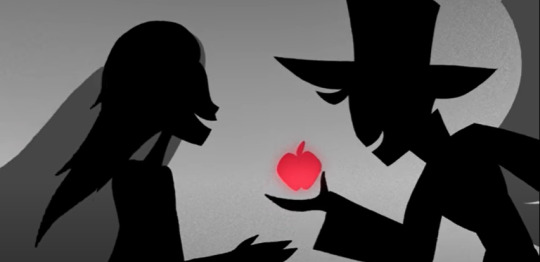
Per one source:
"Because the Hebrew Bible describes the forbidden fruit only as 'peri', the term for general fruit, no one knows [what exactly type of fruit it was]. It could be a fruit that doesn't exist anymore. Historians have speculated it may have been any one of these fruits: pomegranate, mango, fig, grapes, etrog or citron, carob, pear, quince, or mushroom."
Per Wikipedia:
"The pseudepigraphic Book of Enoch describes the tree of knowledge: 'It was like a species of the Tamarind tree, bearing fruit which resembled grapes extremely fine; and its fragrance extended to a considerable distance. I exclaimed, How beautiful is this tree, and how delightful is its appearance!' (1 Enoch 31:4)."
In Jewish and Islamic traditions, the "fruit of knowledge" is commonly identified with grapes. The Zohar explains that Noah attempted (but failed) to rectify the sin of Adam by using grape wine for holy purposes. Today, the "Noah grape" is still used to make white wine.

Furthermore:
"The association of the pomegranate with knowledge of the underworld as provided in the Ancient Greek legend of Hades and Persephone may also have given rise to an association with knowledge of the 'otherworld', tying-in with knowledge that is forbidden to mortals. It is also believed Hades offered Persephone a pomegranate to force her to stay with him in the underworld for 6 months of the year. Hades is the Greek god of the underworld, and the Bible states that whoever eats the forbidden fruit shall die."
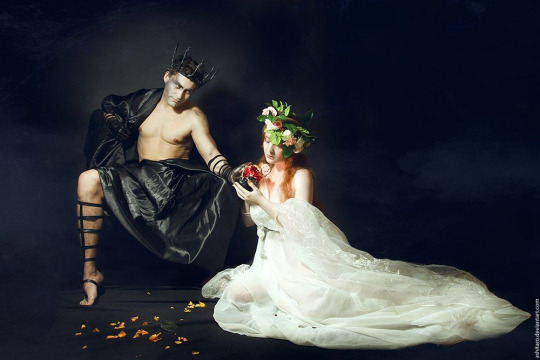
So, how then did the apple become the foremost symbol of the "fruit of knowledge"? You can partly thank Paradise Lost by English poet John Milton, a work which the lore of Hazbin Hotel is based off of.
Milton published the book in 1667, a time when the hedonistic Restoration era was in full swing. The exiled King Charles II was restored to the throne as King of England in 1660, and was a party animal, with dozens of mistresses, and nicknamed both the "playboy prince" and "Old Rowley", the latter after his favorite lustful stallion.
However, the association of the "fruit of knowledge" began with a Latin pun long before Milton immortalized the association in Paradise Lost. Per the linked article above by Nina Martyris for NPR:
"In order to explain, we have to go all the way back to the fourth century A.D., when Pope Damasus ordered his leading scholar of scripture, Jerome, to translate the Hebrew Bible into Latin. Jerome's path-breaking, 15-year project, which resulted in the canonical 'Vulgate', used the Latin spoken by the common man. As it turned out, the Latin words for evil and apple are the same: 'malus'.
[...] When Jerome was translating the 'Tree of the Knowledge of Good and Evil', the word 'malus' snaked in. A brilliant but controversial theologian, Jerome was known for his hot temper, but he obviously also had a rather cool sense of humor.
'Jerome had several options,' says Robert Appelbaum, a professor of English literature at Sweden's Uppsala University. 'But he hit upon the idea of translating 'peri' as 'malus', which in Latin has two very different meanings. As an adjective, 'malus' means 'bad' or 'evil'. As a noun it seems to mean an apple, in our own sense of the word, coming from the very common tree now known officially as the 'Malus pumila'. So Jerome came up with a very good pun.'
The story doesn't end there. 'To complicate things even more,' says Appelbaum, 'the word 'malus' in Jerome's time, and for a long time after, could refer to any fleshy seed-bearing fruit. A pear was a kind of 'malus'. So was the fig, the peach, and so forth.'
Which explains why Michelangelo's Sistine Chapel fresco features a serpent coiled around a fig tree. But the apple began to dominate Fall artworks in Europe after the German artist Albrecht Dürer's famous 1504 engraving depicted the First Couple counterpoised beside an apple tree. It became a template for future artists such as Lucas Cranach the Elder, whose luminous Adam and Eve painting is hung with apples that glow like rubies.
Milton, then, was only following cultural tradition. But he was a renowned Cambridge intellectual fluent in Latin, Greek and Hebrew, who served as secretary for foreign tongues to Oliver Cromwell during the Commonwealth. If anyone was aware of the 'malus' pun, it would be him, and yet he chose to run it with it. Why?
Appelbaum says that Milton's use of the term 'apple' was ambiguous. 'Even in Milton's time the word had two meanings: either what was our common apple, or, again, any fleshy seed-bearing fruit. Milton probably had in mind an ambiguously named object with a variety of connotations as well as denotations, most but not all of them associating the idea of the apple with a kind of innocence, though also with a kind of intoxication, since hard apple cider was a common English drink.'
It was only later readers of Milton, says Appelbaum, who thought of 'apple' as 'apple', and not any seed-bearing fruit. For them, the forbidden fruit became synonymous with the 'malus pumila'. As a widely read canonical work, 'Paradise Lost' was influential in cementing the role of apple in the Fall of Man story."
To tie this back into John Milton's relationship with King Charles II of England, as mentioned, Milton originally served Oliver Cromwell, Lord Protector of England, and the English Commonwealth, which was formed with the overthrow and execution of King Charles I on 30 January 1649, following the bloody English Civil War (1642 – 1651).
The King's two sons - the newly-christened King Charles II, the elder, and James, Duke of York (King James II), the younger - fled into exile on the European continent. However, with the death of Oliver Cromwell on 3 September 1658 came the 2-year-long dissolution of the English Commonwealth, and the restoration of the monarchy.
As for Milton himself, we can look to an article by Bill Potter.
Milton, born on 9 December 1608, was around 51-52 years old when King Charles II was restored to the throne. He attended Christ's Church, Cambridge in his youth, and mastered at least six languages, as well as history and philosophy; making him, perhaps, the most knowledgeable poet in history. He spent more than a year travelling across Europe, conversing with and learning from intellectuals, linguists, poets, and artists, including the famous Galileo Galilei.
However, Milton was a controversial figure of his time, being unafraid to criticize institutions of authority; arguing that "divorce was Biblical", for which he was routinely condemned; joining the Puritans; penning the Areopagitica, a treatise on liberty in favor of Parliament and the Roundhead rebels, during the reign of King Charles I, arguing that the King must be held accountable by the people; and agreed with and justified the murder of King Charles I, for which Parliament hired him in 1649 as a propagandist and correspondence secretary to foreign powers, on account of his fiery manifestos against "the man".
The collapse of the Commonwealth with the death of Oliver Cromwell in 1658 did not deter Milton from continued political writing against the monarchy and the new public sentiment that brought about its Restoration under King Charles II in 1660. On the contrary, Milton - now totally blind, having lost his eyesight by the age of 44 in 1652, a decade earlier - began writing Paradise Lost in 1661, and spent the next six years dictating the work to transcribers.
A supporter of regicide, Milton was also forced into exile himself, and faked his own death, as Charles refused to pardon - and sought to execute - any of those directly involved with his father's murder. Milton's friends held a mock funeral for Milton on 27 August 1660, just months after the coronation of King Charles II on 23 April 1660.
King Charles II commented that he "applauded his [Milton's] policy in escaping the punishment of death [execution for treason] by a reasonable show of dying", but insisted on a public spectacle nonetheless by having Milton's writings burned by the public hangman.
After eventually obtaining a general pardon from King Charles II, Milton was imprisoned, and released, likely due to political friends in high places. He died, aged 64, in 1674. His theological views were sometimes considered heterodox by the best Puritans, and his political views came close to getting him executed on several occasions. His poetry, however, has endured as some of the greatest works in the English language, especially Paradise Lost; much of his greatest work was written during his 22 years of complete blindness.
One of the main factors in King Charles II deciding to grant a pardon to Milton was, ironically, Paradise Lost. While originally written by Milton as a scathing criticism of King Charles II and the monarchy - depicting Lucifer Morningstar as a sympathetic rebel against God, with King Charles II claiming that is right to rule came from "divine ordainment" - Charles II enjoyed the work, and authorized its publication on 20 August 1667. We know this because a 1668 copy of Paradise Lost in royal bindings by Samuel Mearne, bound lovingly in a fine red leather made of goat skins tanned with sumac, and stamped in gold with the royal cypher of King Charles II, was found. The endpapers bore a watermark with the royal arms of Charles II.
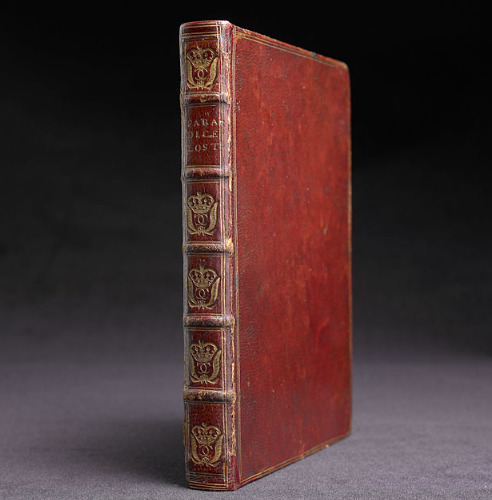
Per one Miltonian scholar: "The most single important event in Milton's life was the event against which he struggled most: the Restoration of Charles II, [and his relationship with the King]. Had it not come, we might have never had Paradise Lost...certainly, we should never have had [it] in [its] present power and significance."
Milton followed up Paradise Lost with Paradise Regained in 1671, three years before his death, with advice for King Charles II, urging the hedonistic Charles to "reign over himself and his passions":
"For therein stands the office of a King, His Honour, Vertue, Merit and chief Praise, That for the Publick all this weight he bears. Yet he who reigns within himself, and rules Passions, Desires, and Fears, is more a King; Which every wise and vertuous man attains: And who attains not, ill aspires to rule Cities of men, or head-strong Multitudes, Subject himself to Anarchy within, Or lawless passions in him which he serves." - John Milton, Paradise Regained, Book II, lines 463-472
To summarize: "If we must have a King back again, my Lord, please try to be a good man, unlike your father, who fell to his pride, [which was also the downfall of Lucifer]."
To quote another source: "Though the passage begins by noting that the office of a King is to bear the weight of public concerns, it is the control of one's private concerns that truly set a King apart as a virtuous character. Indeed, so important is self-command that any wise or virtuous man who attains it is like a king; any king who does not practice [self-command] is nothing more than a mere subject, ruled by anarchy and lawlessness."
Milton's words, too, echo a work written by Charles' grandfather, King James VI/I of Scotland and England: Basilikon Doron ("Royal Gift").
Per Wikipedia:
"'Basilikon Doron' (Βασιλικὸν Δῶρον) means 'royal gift' in Ancient Greek, and was written in the form of a private letter to James' eldest son, Henry, Duke of Rothesay (1594–1612). After Henry's death, James gave it to his second son, Charles, born 1600, later King Charles I. Seven copies were printed in Edinburgh in 1599, and it was republished in London in 1603, when it sold in the thousands.
This document is separated into three books, serving as general guidelines to follow to be an efficient monarch. The first describes a king's duty towards God as a Christian. The second focuses on the roles and responsibilities in office. The third concerns proper behaviour in daily life.
As the first part is concerned with being a good Christian, James instructed his son to love and respect God as well as to fear Him. Furthermore, it is essential to carefully study the Scripture (the Bible) and especially specific books in both the Old and New Testaments. Lastly, he must pray often and always be thankful for what God has given him.
In the second book, James encouraged his son to be a good king, as opposed to a tyrant, by establishing and executing laws as well as governing with justice and equality, such as by boosting the economy. The final portion of the Basilikon Doron focuses on the daily life of a monarch.
All of these guidelines composed an underlying code of conduct to be followed by all monarchs and heads of state to rule and govern efficiently. James assembled these directions as a result of his own experience and upbringing. He, therefore, offered the 'Basilikon Doron' ('Royal Gift') to his son, with the hope of rendering him a capable ruler, and perhaps to pass it down to future generations.
Overall, it repeats the argument for the divine right of kings, as set out in 'The True Law of Free Monarchies', which was also written by James. It warns against 'Papists' (Roman Catholics) and derides Puritans, in keeping with his philosophy of following a 'middle path', which is also reflected in the preface to the 1611 King James Bible. It also advocates removing the Apocrypha from the Bible."
King James VI/I further instructed his son and grandson:
"A good monarch must be well acquainted with his subjects, and so it would be wise to visit each of the kingdoms every three years."
"During war or armed conflict, he should choose old-but-good captains to lead an army of young and agile soldiers."
"In the court and the household, [a royal] should carefully select loyal gentlemen and servants to surround him. When the time came to choose a wife, it would be best if she were of the same religion and had a generous estate. However, she must not meddle with governmental politics, but perform her domestic duties."
"As for inheritance, to ensure stability, the kingdom should be left to the eldest son, not divided among all children."
"Lastly, it is most important...that [a royal] would know well his own craft...to properly govern over his subjects. To do so, [one] must study the laws of the kingdom, and actively participate in the council. Furthermore, [one] must be acquainted with mathematics for military purposes, and world history for foreign policy."
"[A royal] must also not drink and sleep excessively. His wardrobe should always be clean and proper, and he must never let his hair and nails grow long. In his writing and speech, he should use honest and plain language."
King James VI/I further supplemented Basilikon Doron with a written treatise titled The True Law of Free Monarchies: Or, The Reciprocal and Mutual Duty Between a Free King and His Natural Subjects.
"It is believed King James VI/I wrote the tract to set forth his idea of absolutist monarchism in clear contrast to the contractarian views espoused by, among others, James' tutor George Buchanan (in 'De Jure Regni apud Scotos'), [which] held the idea that monarchs rule in accordance of some sort of social contract with their people. James saw the divine right of kings as an extension of the apostolic succession, as both not being subjected by humanly laws."
Milton's own Areopagitica was a follow-up on De Jure Regni apid Scotos by George Buchanan, and also to The True Law of Free Monarchies, as well as the idea of the "divine right of kings". It takes its title in part from Areopagitikos (Greek: Ἀρεοπαγιτικός), a speech written by Athenian orator Isocrates in the 4th century BC.
Most importantly, Milton also wrote on the concept of free will: "Milton's ideas were ahead of his time in the sense that he anticipated the arguments of later advocates of freedom of the press by relating the concept of free will, and choice to individual expression and right."
The concept of free will, too, was a major topic explored in Paradise Lost. Per one source: "In 'Paradise Lost', Milton argues that though God foresaw the Fall of Man, he still didn't influence Adam and Eve's free will. [...] God specifically says that he gives his creatures the option to serve or disobey, as he wants obedience that is freely given [or chosen], not forced. Some critics have claimed that the God of the poem undercuts his own arguments; however, Milton did not believe in the Calvinistic idea of 'predestination' (that God has already decided who is going to Hell and who to Heaven), but he often comes close to describing a Calvinistic God. God purposefully lets Lucifer (Satan) escape Hell, and sneak past Uriel into the Garden of Eden, and basically orchestrates the whole situation so that humanity can be easily ruined by a single disobedient act. In describing the Fall of Man before it happens, God already predicts how he will remedy it, and give greater glory to himself by sending his Son [Jesus Christ] to die, and restore the order of Heaven."
In Hazbin Hotel, Adam also describes the Calvinistic idea of 'predestination', and that "the rules are black and white":

However, "This possible predestination leads to the theory of the 'fortunate fall', which is based on Adam's delight at learning of the eventual coming of the Messiah [from his bloodline]. This idea says that God allowed the Fall of Man, so that he could bring good out of it, possibly more good than would have occurred without the Fall, and be able to show his love and power through the incarnation of his Son. In this way, the free will of Adam and Eve (and Lucifer/Satan) remains basically free, but still fits into God's overarching plan."
However, there is one major flaw with this, and that is that we don't know if Jesus Christ exists within the Hazbin Hotel universe or not. Yet Charlie Morningstar, the daughter of Lucifer Morningstar and Lilith, and the "Princess of Hell", is depicted as a savior-esque figure within the show who, like God in Paradise Lost, encourages lowly sinners to choose obedience to God out of their own free will. More interestingly, Charlie does not come from Adam's bloodline; yet, while Lucifer decries 'free will', Charlie supports 'free will' instead.
Perhaps is is merely because Charlie, being the daughter of Lucifer and Lilith, claims to want to fulfill Lilith's "dream" of humanity being empowered in Hell ("The mind is its own place, it can make Heaven out of Hell, or Hell out of Heaven" - Lucifer, Paradise Lost); however, I think it also stems from Charlie having a genuine belief that 'free will', and people choosing to do good instead of evil, is "good" and "Godly".
True to Paradise Lost, this is also in fulfillment of God's plan; and, according to one fanfiction, why God allowed Charlie to be born to Lucifer and Lilith, so that sinners may be redeemed through Charlie.
For more on differing interpretations of 'free will', I suggest reading: "Free Will and the Diminishing Importance of God's Will: A Study of Paradise Lost and Supernatural" by Kimberly Batchelor (2016)
Excerpt: "'Paradise Lost' –and Milton’s purpose for writing the poem— is rooted deeply in postreformation Arminianism and this is apparent in its employment of free will. Chapter 1 argues that Milton turns to free will as a tool to justify the actions of God. Freedom of choice is God-given, and sets up a morality in which right and wrong are dictated by God. Chapter 2 shows that in 'Supernatural', free will is not given by a higher power; and, in fact, free choice functions as an act of defiance against God's will."
This raises the question: Is 'free will' given by God, using Lucifer as his vessel, in Hazbin Hotel, as in Paradise Lost? Or is 'free will' not given by a higher power; and, in fact, an act of defiance against God?
This brings us back around to our first question: Why is an apple, or 'malus', used to depict the "fruit of knowledge", especially if 'malus' means 'bad or evil', whereas Milton depicts 'free will' as God-given?
Well, for one, Lucifer still chooses to associate himself with apple symbolism and imagery, despite being skeptical of free will:
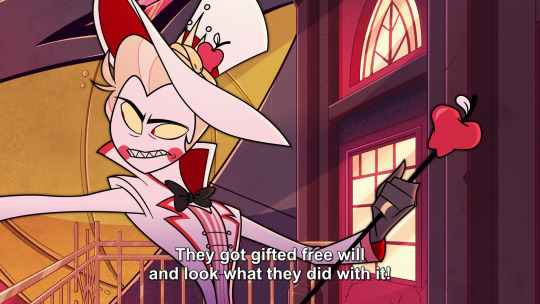
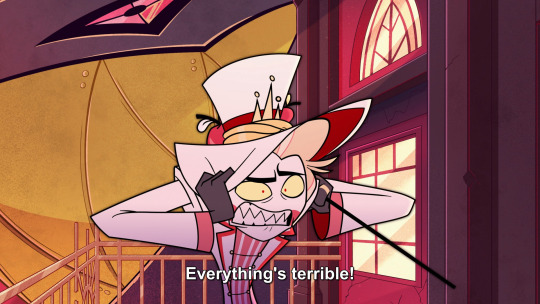
Based on the introduction to Episode 1, Charlie also views 'free will' as a gift (Miltonian), whereas Lucifer appears to view it as a curse.
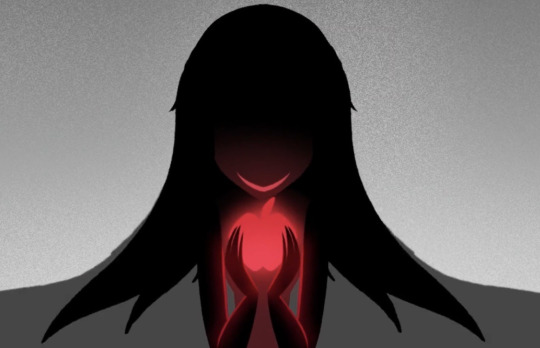
However, Charlie also notes that it was through the 'gift' of free will that the "root of all evil" entered the world, for if mankind could choose to be good, then they could also choose to be evil ('malus').
John Milton states in Paradise Lost: "Of Man's First Disobedience, and the Fruit Of that Forbidden Tree [malus], whose mortal taste Brought Death (evil, malus) into the World, and all our woe."
Thus, the use of an apple specifically is likely a tie-in to what others have been speculating about a character that series creator Vivienne Medrano (Vivziepop) alluded to a while back: "The Root of All Evil".
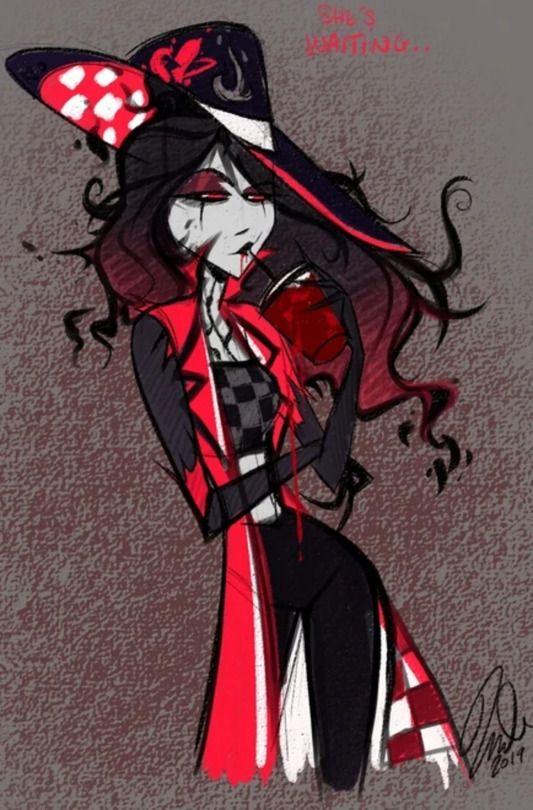
However, "Roo" itself is depicted as possessing the body of a human woman, presumably Eve, the first one to eat the "fruit of knowledge":
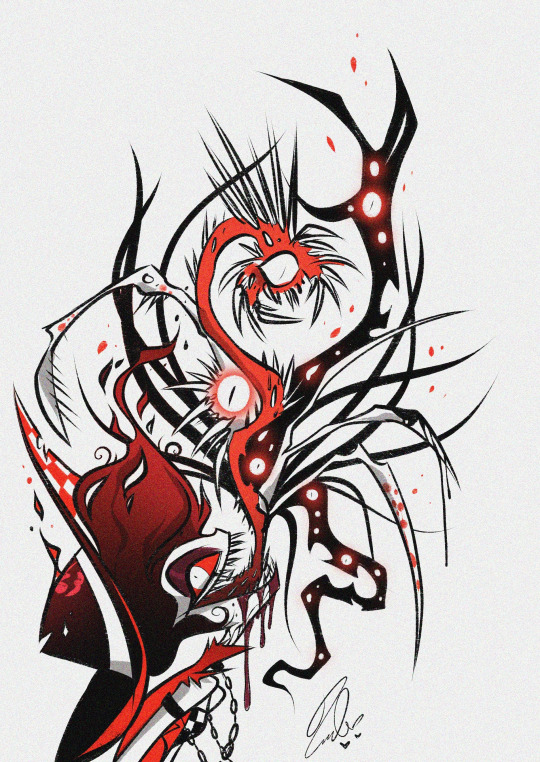
Thus, we can discern that "Malus" likely refers to this character. (Also see: "Maleficent", a name that also uses the root word "mal", "evil".) As for Roo's intentions, if Charlie is "good" - and, if, in fact, Alastor was sent by "Roo" (Eve) - then they may want for Alastor to work on their behalf to "corrupt" Charlie, or make sure the hotel never succeeds.
This is because demonic power is tied to human souls, and there are "millions of souls" in Hell, which likely fuels the great power of "Roo". The more souls there are in Hell, the more powerful "Roo" becomes. The Overlords also get their demonic power from "millions of souls".
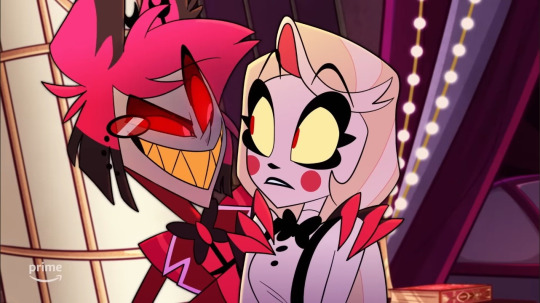
The deal between Eve and "Roo" might even be the first contract, or deal, between a human soul and a demonic entity; in exchange for 'free will', and the knowledge of good and evil, Eve allowed the "Root of All Evil" to inhabit her body, and to escape the void or prison it was confined to by Heaven (Hell?). (For one cannot be 'all-good' unless you attempt to 'eliminate' or 'ablate' evil; and, in Greek mythology, Zeus imprisoned the Titans in Tartarus for all of their evil deeds.)
Another possibility, brought up in an article by Gillian Osborne, is that Lucifer sees the "fruit of knowledge" as an apple, but it may appear as different fruits to different people, depending on how they view it. This also fits with Lucifer and angels being able to easily shapeshift.
In Paradise Lost, only Lucifer describes the fruit as an "apple" (malus), as he associates malus with "bad, evil", while the narrator also describes the fruit as "a mix of different colors" and peach-like. This then begs the question: "Did the fruit of knowledge of good and evil become 'evil' because Eve harbored resentment towards Adam?"
Quote: "Lucifer (Satan) gives Eve yet another hint that this tree may be more complicated than he wishes her to believe: although elsewhere in Milton's poem Eden is heady with its own newness, sprouting spring flowers left and right, the tree of knowledge is already old: its trunk is 'mossie'. Nevertheless, Lucifer claims to wind himself around the tree 'soon'; the quickness of his reported arrival stands in contrast to the timescales required to cover a fruit tree with moss (PL 9.589). Placing Lucifer's winding body between these two timescales—an easeful present and the inhuman scale of natural history—Milton suggests that there is something dangerous in entangling the past with the present. Yet, 'Paradise Lost' also makes deep biblical history feel like present politics for its readers. When Adam and Eve wander out of Eden at the end of the poem, they famously make their way not only into an earthly paradise, but also into the present. Eden's mossy apple tree therefore represents the pitfalls of conflating nature and history, of seeing any action in human history—even Eve's eating of an apple—as natural, if by nature, we mean inevitability. For Milton, history, unlike nature, is directed by humans, progressive, and, like the reading of 'Paradise Lost', hard work. While trees may inevitably collect moss the longer they live, Adam and Eve's labors in the garden, and our labors of reading, require agency and effort. Milton's poem refuses mourning the loss of Eden, [and the perfection of Heaven], in favor of a perpetual, melancholic, recreation of paradise: a present perfecting."
To quote Twisted: The Untold Story of a Royal Vizier, which also draws inspiration from John Milton's Paradise Lost: "It's an unfortunate situation...but you do have a choice [i.e. free will]."
#hazbin hotel#hazbin hotel analysis#hazbin#hazbin analysis#hazbin hotel meta#hazbin meta#hazbin hotel theory#hazbin theory#deep thoughts#john milton#paradise lost#eve hazbin hotel#lucifer hazbin hotel#lucifer morningstar#adam hazbin hotel#lilith hazbin hotel#lilith morningstar#roo hazbin hotel#root of all evil
225 notes
·
View notes
Text
SHOW CRUMBS FROM THE RECENT Q&A
Red quotes are from Amir Talai (alastor's VA)
Green quotes are from Vivienne
Yellow texts are my own fuckery
(quotes may not be exact wordings but I tried my best)
❀ Alastor was not that honest about being Charlie's dad. He was just immediately put off by Lucifer, this powerful being, and thought "how do I mess with this guy? Oh I know how"
❀ Charlie gets a cool costume in the finale
❀ Alastor will be explored more in future episodes; he might also be scared of something or someone because "Vivienne won't write someone who has it all"
❀ We'll also see more of Alastor's emotions explored
(Ig this means Alastor won't be the one to die!)
❀ We'll see more of Nifty and Alastor's relationship in next couple of episodes; they get along because they both see that everything is beneath them. Nifty doesn't care about anything, Al doesn't care about anything. Alastor is fond of Nifty and finds her fun and endearing.
❀ Lucifer wears a hat as a crown and to make up for height. "I don't think Lucifer cares about fashion, I think he cares about his height and shortness"
❀ Charlie is around mid 6ft and Val above 10ft. Most characters are really unhuman in scale.
❀ The song from the trailer will be in next drop (wasn't clarified if episode 7 or 8)
❀ Confirmed someone dies. "I can cause a lot of chaos right now." "If you're worried it's Angel, you can sleep fine tonight"
(seems like both Al and Angel are safe for now then!)
Some jokes shared by the three:
❀ Viv thinks Al is more chaotic neutral; Amir refuses to comment. "I'm not smart enough to answer without giving things away"
❀ Alastor always being in full attire
"I feel like he's the type of a guy to sleep in full get up— Though I'm not sure he sleeps much"
"Someone can walk in on him showering and see if he has a tail—"
"And he still has his coat on!"
#not hxh related sorry#hazbin hotel#kinda meta i suppose#If Husk dies in the finale I'm rioting#But also the confirmation on Lucifer being so prideful as to use a hat to compensate is SENDING ME#Jades chats#Charlie Morningstar#Lucifer morningstar#Alastor#Nifty#Angel Dust#Valentino#just a bunch of crumbs I'll be feasting on til the finale
273 notes
·
View notes
Text
so if angel vessels are tied to bloodlines…
and sam is lucifer's perfect vessel, and dean is micheal's…
and their ancestors were bred specifically to perfect them over time…
and john was able to hold michael fairly easily…
…does that mean mary would have been a good vessel for lucifer?
JFC WRITERS WHY DID WE NOT GET LUCIFER-POSSESSED MARY???
can you imagine what that would have done to her? can you imagine what that would have done to sam??
#just another lost opportunity#this would have been so delicious#the possibilities#the aftermath#the guilt#the shame#for both of them#early s13 it could have worked#supernatural writers have some regrets#or at least i do#spn meta#sam winchester and lucifer#mary winchester and lucifer#sam smith would have killed it i bet
235 notes
·
View notes
Text
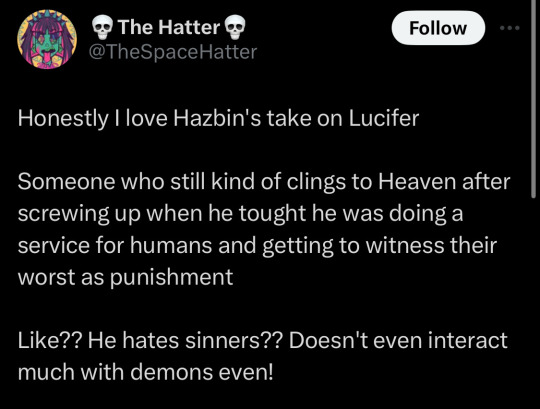

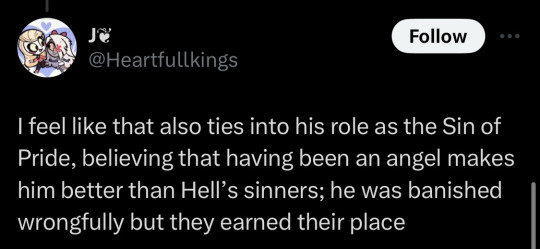
4K notes
·
View notes
Text
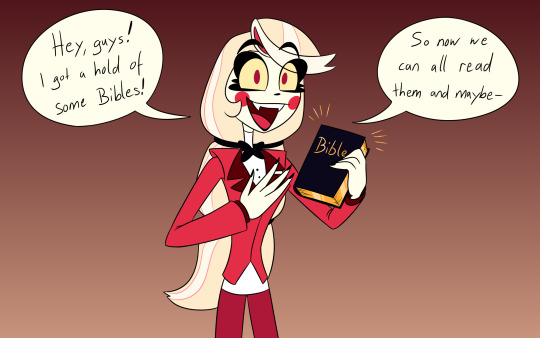


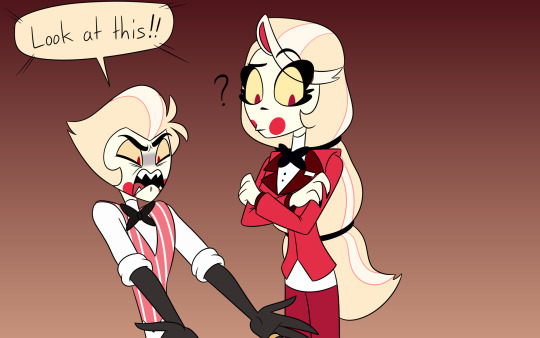
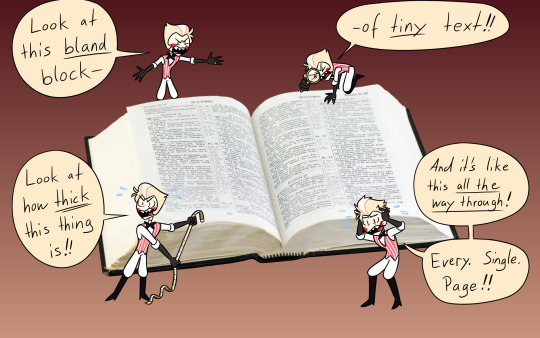
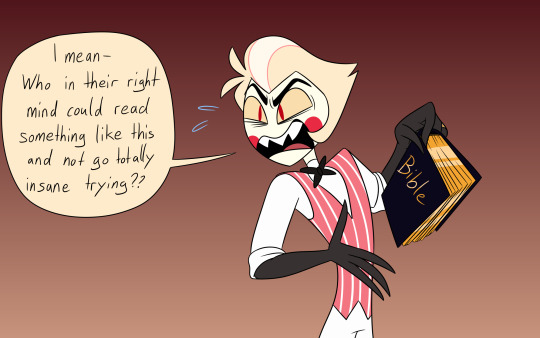





It might just be the depression, but Lucifer feels so relatable that I have to project my ADHD onto him too, pff
I just spend 9 hours in a row just tonight to finally get this one done since I'd started it before the last comic and wanted to have it finally ready before I get even more ideas started cgvhbj (I still have more WIPs to work on)
#Hazbin Hotel#Charlie Morningstar#Hazbin Charlie#Lucifer Morningstar#Hazbin Lucifer#Alastor#Radio Demon#ADHD#Meta#MetaTheTrifox#MetaLatias#MetaLatias5
717 notes
·
View notes
Text
Yes radioapple is fun if they end up in bed together but I think it's funnier if they just begrudgingly share space while nurturing an completely outsized hatred of each other. Smiling big smiles while Charlie is in the room and then going full rap battles of history on each other as soon as she skips off. Laying deadly snares across the hotel and then blinking big doe eyes when Vaggie asks where all the bear traps and trapdoors came from like "I haven't the faintest notion of what you are referring to".
135 notes
·
View notes
Text
its so so insane how dean has like. the huge fanbase he does. he is AWFUL!!!! i love him truly but im known for loving awful characters in fandoms im used to characters who act like him being viciously hated!!! and the only explanation i can think of is that hes played by jensen ackles (aka pretty white man). theres the fact that the narrative favours dean a lot when hes not actually right (a la s4) but thats not just it because dean is pretty clear-cut presesnted as getting morally greyer to the point of antihero territory in like s9 (where im at) at least. and Yet. he is unproblematic ally king to all??? supportive brother of the century??? Girl what???? do you know who dean winchester is? he is a controlling possessive clingy manipulative aggressive unstable thirty five year old who cant grow past his own damage and never really will because the narrative is perpetuated by the cycles he keeps perpetuating
#thing is like. the narrative corrupts dean under the guise of heroism and makes him worse and worse while it punishes sam under the guise of#justice and hurts him more and more#its like how their most defining moments of hell trauma respectively is dean torturing others and sam getting tortured#dean is The Good One and sam is The Bad One but the narrative pushes dean so much and makes him so angry he breaks and gets worse#and more 'villainous' (bad word). and the narrative hurts sam so much for the crime of being born the bad son that he just becomes more and#more of a victim. at the start of the show dean is michael and sam is lucifer. thats their destined roles. but by season nine dean is cain#and sam is abel. thats what it comes down to. Augh.#and they need to keep being codependent and resurrecting each other and needing each other forever and ever and getting worse and more#damaged in tandem because thats how the show even exists. meta!#and all this is soo like. because in supernatural the narrative is god. god is the author of their book series. Christ#what a show. its SO good despite not being good at all.#spn#oliver talks#supernatural#dean winchester#sam winchester#spn meta
141 notes
·
View notes
Text
The Erasure of Human!Metatron
The elephant in the room is that Neil has [purportedly] denied the existence of a human Metatron. But I, for one, think an elephant really ties the room together. So let's get started.
First, I will address Neil Gaiman’s apparent denial of the Human!Metatron storyline (below the cut):

Caption: The Metatron in Good Omens wasn't ever human.
Which would seem to put the debate to bed.
Except.

Caption: That’s not really his father. It is. It is now, and it always was.
By Adam renouncing Satan as his father, we have in-story canon evidence that the past can be retroactively changed. So a storyline past can be divergent from an in-world past which has been modified. But only to a degree, because Aziraphale and Crowley clearly remember that Adam ~was~ Satan’s son, and Adam still retains some residual powers. Like pencil marks on paper, the past can be erased, but the shadow of its former self will always be there. But if that's not enough for you, there's also...
Lucifer!Satan
Neil Gaiman has also been pretty consistent with this characterization about the non-existence of the past in other characters, for example Lucifer!Satan:
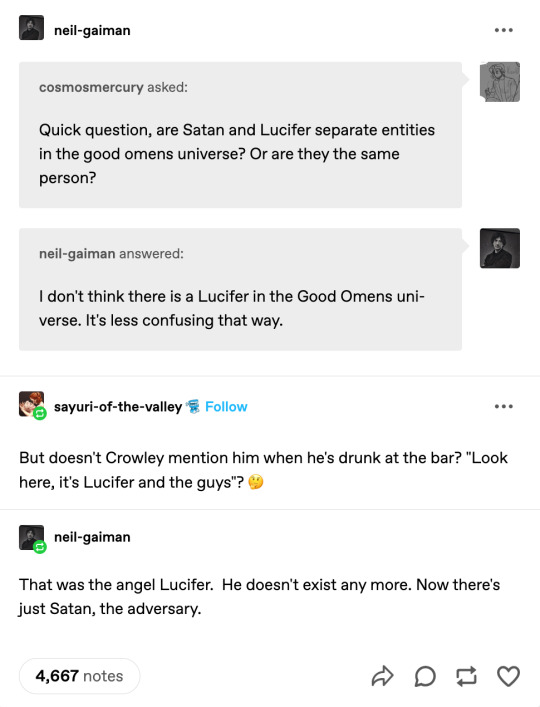
Basically (not to be rude), if you think that these statements can be taken to mean that we will definitely not get a story about Enoch aka Human!Metatron in S3, you have fundamentally misunderstood how time, history, and identity work in Neil Gaiman’s Good Omens universe.
So what Neil said about Metatron never being human… can we just collectively set that aside for a moment?

Caption: Work with me, I’m extrapolating here. Yes? Good. Read the rest of the meta.
Evidence of Human!Metatron
Now that we have established that a former, no-longer-existing version of Metatron could have been human, let’s examine the in-world evidence. The best direct evidence is:

Caption: I’ve ingested things in my time, you know.
This is weirdly important in the Book of Enoch. Food is mentioned in the Book of Enoch at least fourteen times, and consistently it is associated with being human, and having earthly desires, and subsequently with sin, whereas the angels are described as not needing to eat food but instead being nourished by faith alone. Enoch!Metatron’s own relationship with food is also explicitly elucidated:
Enoch answered to his son Mathosalam (and) said: Hear, child, from the time when the Lord anointed me with the ointment of his glory, (there has been no) food in me, and my soul remembers not earthly enjoyment, neither do I want anything earthly.
I propose that "in my time" is a direct reference to Metatron's prior existence as a human, and the fact that this time is over serves to underscore his current inhumanity, making him all the more sinister.
Other Evidence Pointing to Book of Enoch
This next bit is somewhat dubious evidence, but the entire reason I wound up investigating this is that I was actually investigating Baraqiel:
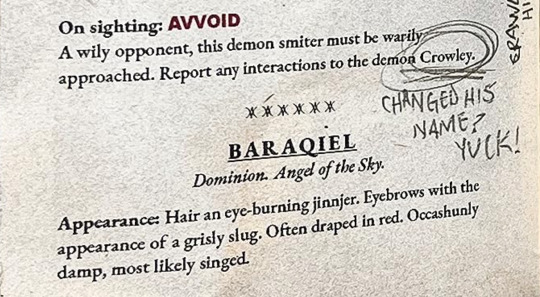
…and for the God-fearing life of me, I cannot find any reference to Baraqiel except in the Book of Enoch. So this is a pretty big ✨Clue✨ to just leave hanging out there if it’s not supposed to lead us to this text.
The Scottish Mason
Okay guys, this the part where it all comes unhinged, but I promise the payoff is worth it.
The Book of Enoch was recovered from Ethiopia in 1773 by a Scottish explorer named James Bruce, who also happened to be a Mason. In 1774, upon his return, he was made a Fellow of The Royal Society of Edinburgh. And if this quote doesn’t get you, I don’t know what will:
Amazingly, Bruce brings back not just one copy, nor two, but three! Three copies of this text, which was previously thought to have been lost to the West forever. This inevitably led to all kinds of accusations as to where he had come by them, and more importantly how? Add to this that Bruce was a Mason in one of the most influential lodges, a Bruce descendant, and an imposing physical figure and 6 feet 4 inches tall, with dark red hair and an irascible temper, it is no wonder that so much excitement and mystery surrounded the man. [source]
So, you know, this guy:
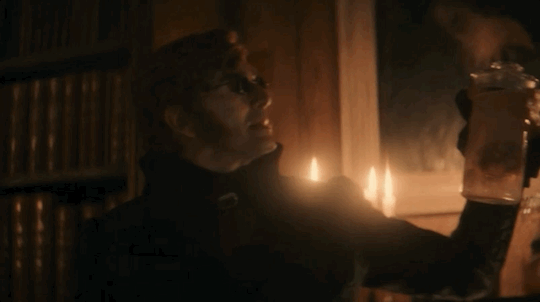
In summary:
There are reasons that we should be looking to the Book of Enoch, and the story surrounding its reintroduction to the Western world, as source evidence for Good Omens S3.
If you enjoyed this, you may also like my meta on Baraqiel and Azazel, which draws upon the Book of Enoch.
My original (in retrospect, kind of terrible) Metatron meta is here.
#good omens meta#good omens#good omens 2#the metatron#metatron#book of enoch#crowley#satan#lucifer#baraqiel#book of life#ivoc#erasure theory
242 notes
·
View notes
Text
Hazbin Hotel would be so much more interesting if charlie’s naïveté and surface-level kindness were treated as the actual flaws they are and didn’t work. Heads up, this kinda just turned into a text wall of charlie neg and ranting so don’t read if you don’t want to see that.
How she currently is, she just doesn’t make that much sense in the setting. I’ve seen ppl say that charlie is a fresh take and contrasts the edginess, but I just don’t see how she is possible. You’re telling me she’s been in hell for 200 yrs but still has this childish and naive personality, is still disgusted by the sinners being cannibalistic, violent, and even just horny, and is so detached from those she calls “her people”? She was born in hell, shouldn’t that make her more used to the sinners’ depravity and not less? She doesn’t seem to have a good grasp on what the sinners want or how they behave. It would make more sense if the show leaned into the toxic positivity white savior nepo baby angle (or rather, actually portrayed it as a *bad* thing) and rather than naïveté, her ignorance was out of self-centeredness and/or lack of true empathy for the other sinners. She would be more interesting as a character too imo.
She looks down on the other sinners (and honestly so does the show?? When she’s showing lucifer around and introduces him to her friends, they’re framed as unappealing as a joke… these are the characters the audience is also supposed to care about.. and many of the bg chars, such as the cannibal town residents, are portrayed as simple-minded brutes), there’s a lot of condescending “….ooookay” type of lines and she constantly has to think of nice ways to frame the clearly negative things she thinks about others. So why does she want to save them so much? The more reasonable explanation is a sense of white savior-ness than actually caring about them.
She’s eager to excuse whatever sir pentious did (which I’m assuming she doesn’t know?) and let him in, despite how he makes the other residents (including her own gf!) uncomfortable. And yes I say excuse, because she never inquires about his past sins or discussed him repenting. It seems to start with sorry, but also end with sorry too. This could’ve been made interesting if she simultaneously looked down on but also excused all sorts of heinous acts. Like val is the most openly manipulative and scummy character, he licks her arm, and yet she’s still apologetic about ruining things (Side note, if she’s genuinely apologetic, then she’s actually an idiot because why is she talking to the boom-mic employee *while they’re filming???*).
She doesn’t know what she’s doing and has no concrete plan but gets incredulous at ppl who don’t blindly trust her. Angel has to leave in ep 4 and she gets SO frustrated over it, like you seriously expect everyone to drop all of their other commitments for you? She has her webster definition notecards for the meeting with heaven and has to improvise and rely on angel being good at the club but she gets mad that lucifer isn’t 100% behind her plan?
Also, trust falls? Really? Then she goes “why isn’t this working? We’ve tried everything!” But on that note, the actual episode portrayal is kinda exactly what I’m going for. Not only do the trust falls not work, charlie says, “I love all of you so much,” pulls her puppy eyes, and only vaggie catches her. It’s surface level and shallow, and does not win anyone else over.
In contrast, vaggie’s attempt at building trust, throwing everyone into a battle, *actually works* (despite vaggie only being in hell for 3 years and being heaven-born, she already knows how things work better than charlie!) and yet charlie talks about it as though it already failed. She says “we work best as a team,” with the underlying message being “I can’t trust you to do things on your own.”
If she was waiting so long to reconnect with lucifer, then why hasn’t she called him in years?? Altho I’m currently rotating lucifer in my brain so I might be a bit biased
“If angels can do whatever and stay in the sky” they can’t?? Your dad is RIGHT there. I. What
She has a power dynamic with every other character except lucifer since she has her demon powers, not to mention she’s giving them a place to stay. When vaggie says she appreciates that charlie doesn’t use her powers, charlie doesn’t say “it wouldn’t be right,” she says it would be too *mean.* But if someone pushes her buttons, who’s to say they wouldn’t slip out (see her flip on a dime after val hits angel. Obv it’s justified in this case, but it shows that she’s willing to use her powers on sinners)? Again, it would be interesting if the show actually leaned into this angle. Imagine if she put on a nice front, never swore, seemed genuinely touching and understanding, but the second someone annoys her she annihilates them and becomes threatening and violent. Then she turns around and is nice again. Too much like alastor? idk
Also, many characters refer to her by calling her lucifer’s daughter, so clearly ppl know that if they cross her they’ll face his wrath by proxy (this also fits in thematically with what lute tells her in the first episode, that she’s exempt from the exterminations bc nepotism privilege). So realistically, everyone else would be a bunch of sucking-up yes-men bc they’re afraid of her. Which they kind of are when push comes to shove?
At first, she doesn’t help at all during the war and lets everyone else fight for her. Doesn’t want to get her hands dirty ig, even though all of this was caused by her in the first place. She only starts fighting at vaggie’s urging.
Like husk points out, every meeting charlie has with the angels makes things worse for all the sinners. Despite lucifer’s warnings that the meeting with heaven won’t work, and against vaggie saying to calm down, charlie basically picks a fight with heaven at the risk of *everyone else EXCEPT HER.*
What were charlie and lilith doing to stop the exterminations before lilith took her 7 year leave? Hell, what was charlie doing during those 7 years? Why does she have 0 connections outside of vaggie, who she only met 3 yrs ago? Why does she have to introduce herself to rosie, rather than her already knowing her name?
Also in ep 7 she says to alastor “I can’t believe how you can do exactly what you told me you would do!” (standing by and watching everyone fail at redemption) almost like she wasn’t paying attention to him at all.
“Why would vaggie hide that she was an exterminator” -> Rosie asks “how did that make you feel?” “It made me mad and doubt if she loves me” like I get it, it was a betrayal, but IS she stupid
Ready For This is charlie manipulating a town of ppl to join the army. Her pitch includes “on the way to the hotel the scenery is nice and you can make friends :3” and “have you ever wanted to die for a cause? Notably I myself am spared from being killed but uh that’s your problem.” Alastor pipes in that you can eat the angels and that’s what actually moves the crowd, because he understands them.
Her perspective on violence and where she chooses to draw the line is really confusing. Why does she care about sinners being violent to each other if they’ll just respawn? She stops alastor from beating up sir pentious at an arbitrary point, but is fine with him eating and presumably killing the gangsters who come after mimzy. (Edit: forgot to point out yet another example, that she was fine with vaggie tossing sir pentious and angel off the balcony but stops her from tossing niffty as well for no reason.) Why is she so apologetic to the angels actively killing sinners but was distraught over vaggie having partaken? Why was she opposed to the CANNIBALS being eager to eat the angels and saying “idk, they seem kinda murder-y” WHAT. What? I’m struggling to even begin to describe how ignorant that is during a WAR. What did she think was going to happen, that she wouldn’t have to fight anyone herself? Why did she stop her dad from killing Adam but doesn’t react strongly to Niffty finishing the job? If it mattered so much to her, the lack of reaction seems strange to me.
Isn’t it just so poetic that her weapon in the war is a shield that she uses exclusively on herself, which she hardly even needs due to her contractual immunity?
Why doesn’t she think to use her powers to build and maintain the hotel? That doesn’t require any violence or domineering. Yet when lucifer comes over it’s run-down and falling apart. Or ask lucifer to help her build it? She was concerned that asking for the meeting with heaven was such a big ask—why not start with this small thing? Father-daughter bonding.
Why does the show end w lucifer + the sinners congratulating her, and in particular, rebuilding the hotel? Hell doesn’t know that sir pentious got redeemed, so from their pov charlie’s idea didn’t work at all.
Can you tell that I’m writing this while I’m rewatching the show?
Aaand that’s that. Her char has always come off to me as somewhat condescending/fake, but I keep finding more and more things to dislike about the way she’s been written. Unfortunate. Honestly tho I might enjoy watching her more if I read her through this lens. You could probably write a similar post for most/all other chars in the show, limited only by the amount of screentime they get lmao
#ps it would have made a bit too much sense for the character fucking named ANGEL to be redeemed at the end of the season#he was the one charlie was making her entire case about in ep 6#like sir pentious was never brought up#and angel was one of the ogs of the hotel#and had ep 4#but ig the show thought better of it#rewatching the pilot and angel would’ve been so much more interesting ;u; he’s so one-note now…#hazbin hotel critical#hazbin hotel#meta#charlie morningstar neg#honestly with lucifer as my blorbo I probably shouldn’t be shittalking charlie#he’d annihilate me#sorry man I just want your daughter to have a bit more confidence… yeah that’s it#.txt
87 notes
·
View notes

